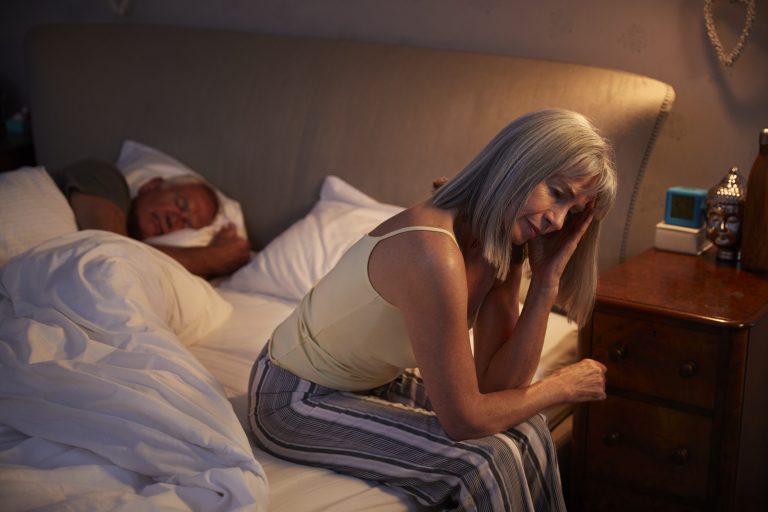Many of us have trouble sleeping. It is becoming, for better or worse, a common part of living in today’s high stress society. One could even argue that it is more common here in New York, because we have a culture of living a more intense and grinding lifestyle than they have in other parts of the world.
Insomnia does not have a single cause. It is multifaceted. Some people are genuinely more prone to lighter sleeping. Others may be taking medications that cause insomnia. Others may not have intentional insomnia, but noise around them keeps them awake, or too much late night caffeine. Pain, heartburn, and other medical conditions can lead to insomnia as well.
There is no single cause, and it is typically something that you address both medically and psychologically when it occurs. Yet one factor that is frequently a part of the greater insomnia picture – whether it’s the primary cause or a contributing factor – is stress and anxiety:
- Worrisome thoughts that keep us awake.
- Tension that makes it difficult to relax.
- Fears that make it difficult to feel safe.
While it is important to get other potential issues checked, we have to also acknowledge and determine if anxiety and stress may play a role.
Anxiety, Stress, and Insomnia
We typically think of insomnia as a medical issue, and when we struggle with it, we ask our doctor if they have anything we can take to help with our sleep. That is why sleep aids are so heavily prescribed, and why people take herbal and natural supplements like melatonin are so popular. When you view insomnia as strictly or primarily a medical issue, it is natural to want to take some type of medicine of some kind to fix it.
However, it is important for us to also look at a person’s mental health. Even though we sleep every day, a large component of sleep requires many things to be perfect:
- We have to allow our brains to “shut off” and rest.
- We have to be able to physically relax and reduce our pain.
- We have to feel tired, without this alertness that can make us on edge.
None of this is possible when our minds are active and stressed by anxiety and the world around us.
Often, the issue is also biochemical.
One thing many people forget about anxiety and stress is that it also triggers adrenaline. The fight or flight system – which is our body’s way of making sure we have the energy and ability to fight or flee if we’re in danger – triggers a system in place that is specifically designed to help us stay alert and ready, as though we are in danger. Clearly, falling asleep would put us in greater danger, and so our brains stay awake.
It’s actually amazing that we are able to sleep every day, knowing that we need all those things to be in working order. Now, over time, we can get tired enough that our bodies basically shut down and make us sleep, but since we need to get at least 8 hours of sleep, we can’t always wait until we feel so exhausted that we “knock out.”
What Does This Mean for Treating Insomnia?
Going to the doctor is important. But equally so is talking to someone about your stress and anxiety. Not only is stress and anxiety a possible, if not likely cause of your insomnia, but even in situations where you have other medical conditions that may create insomnia, the stress and anxiety of those conditions can also lead to further insomnia. Learning how to calm yourself, relax your mind, and feel less stress when you’re asleep is still going to be an asset.
Insomnia Therapist on Long Island
Long Island Counseling Services specializes in anxiety, stress, depression, and other mental health conditions that contribute to insomnia. We can be there for you to help you sleep, relax, and of course experience the other benefits that come from addressing anxiety and stress. For more information about these services, please contact Long Island Counseling Services, today.

